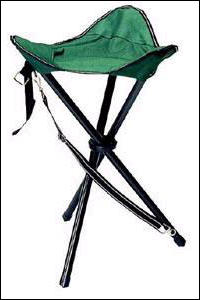This issue of Muslim dress isn’t going away fast. One of the issues that frustrates me so much is the assumption that women who wear the niqab or the burkha or any kind of head dress don’t have a choice in doing so. This touches one of the most sensitive issues in feminist discourse.
Feminism, as with all movements for equality, is primarily about maximising the number of choices people have – to achieve
equal opportunities for men and women. This principle has caused much difficulty for the simple reason that we don’t always approve of one another’s choices. Most of the arguments that continue to surface among feminists are very often triggered by an argument that there are some things that women
shouldn’t or indeed
cannot freely choose to do.
The
cannot is far more interesting that the
shouldn’t to me because it is nonsense, but such complicated nonsense. And in case you hadn’t noticed, I have a penchant for complicated nonsense.
After all, the degree of choice a person has lies primarily in the perception of the individual. And this perception is influenced by all sorts of things; personal circumstances, and social environment as well as our personalities (and everything that influences their construction).
For example, a person might grow up next to a lake, but never swim in it.
- This may be because they have never seen anybody else swim and they don’t realise it’s possible.
- This may be because they have been told in no uncertain terms that it is bad to swim in the lake.
- This may be because it is against the law to swim in the lake.
In any of these three circumstances, a person’s curiosity might have overcome them, even to the extent of defying the law. However, the barriers of ignorance, social conditioning and most especially the law will have made it
much less likely that this person would ever swim compared to a scenario where swimming was an okay and commonplace thing to do.
So to dress. In the West, men experience
far greater social restrictions on dress than women do and this has been the case for the last century or two. The primary dress requirement for a man is to make his gender completely and utterly unambiguous, an effect generally achieved by wearing the same thing as all other men, give or take the pattern of a tie. My father is not in a job with a uniform, but if he was to deviate from the norm as much as to
omit the tie, he would be considered unsuitably dressed for work.
However, despite the increased potential for variation, women are far more likely to be judged according to our physical appearance in all sorts of circumstances. For example, many cultural sources would lead us to believe that what we look like is the sum total of our sexual attractiveness, and that our sexual attractiveness is the sum total of our value as people. Many books, movies and television dramas, for example, have a sole feminine character who says or does very little but look pretty until the hero falls head over heals for her. And it is deep in our consciousness; a family friend left his wife of thirty years for another woman, and all anyone could say about the new flame was to exclaim in amazement, “But she’s not even as good-looking as the wife is!”
Religious anxiety about feminine modesty supports this as much as the skimpiest modern clothes; the former states
my body is a sexual object, it must be covered up and the latter states
my body is a sexual object, it must be displayed. In Western society, we get a big messy mixture of these two contrary messages.
Fortunately, this isn’t the sum total of the information available to us. But a woman who absorbs this particular set of messages is likely to feel that what she looks like and thus what she wears is absolutely pivotal to who she is and what she is worth. Most of us probably pick up
some of that conditioning and our choices must be diminished as a result.
The same sort of thing happens in most cultures.
However, it would be completely misleading to think that one can determine motivation from what an individual is wearing.
I cannot speak for Muslim women in the UK, but there are perhaps two main ways that feminists respond to the cultural baggage of feminine attire. One is straight-forward non-compliance; to metaphorically burn the bra, to dress entirely for comfort and modesty and to forgo beauty rituals like defoliation and make-up. The niqab could arguably seen as an extreme version of this response;
I refuse to be judged in this way, so you shan’t judge see anything to judge me by.
Many feminists are reluctant to do this because self-ornamentation can be a big part of human sexuality. Many men and women enjoy the potential for self-expression and sensuality through clothing, jewellery, make-up etc..
So the other response is subversion; to take some or all of the cultural baggage and find ways of turning it on its head. However, the niqab can even be used in this way; wear the niqab, but then demonstrate by action that you are nothing like the silent, submissive, uneducated woman that has been historically associated with that dress.
There isn’t any right or wrong in this. If a woman feels the need to cover up because she considers her body shameful, or because she feels that to do otherwise is to invite unwanted attention or because she feels defined by her sexual relationship to men, then that’s a sad thing.
But we can’t say, just by looking at a person, that this is the case. Nor can we really say that any of our personal choices are made in complete independance from sexist conditioning, but you'll be pleased to know that nobody can say otherwise either. From a feminist perspective, mere
consciousness of these issues is half the battle.
Incidentally, religion, as set apart from culture, can’t really come into an argument about diminised choice. Logically, if a religious practice is
not a choice, then no God is going to reward its obedience or punish its defiance. It is also impossible for a society to treat religious practices as particularly special, because one could declare that almost any behaviour to be excused on the grounds of religion. What we can do however, is to give one another as much freedom and respect as possible and only interfere with practices which pose an actual problem. The circumstances under which the niqab or burkha may be a problem is really another issue.





